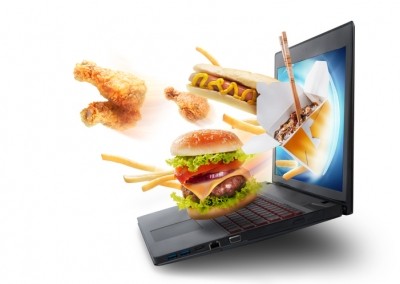Ambrosus is bringing farm-to-fork Blockchain technology to industry 'pioneers'

Ambrosus combines high-tech sensors, Blockchain protocol and smart contracts to record the entire history of food and pharmaceutical products.
A smart phone becomes the tool through which any actor in the food chain, from producers, suppliers, retailers or end consumers, can immediately access trustworthy data from the Blockchain, its CEO, Angel Versetti, told FoodNavigator.
Ambrosus also creates “smart contracts” that allows companies to have real-time supply chain audits through tracing and tracking systems that eliminate the need for human inspectors.
What is Blockchain?
Vice president of food at certification agency Bureau Veritas Vincent Bourdil gives this definition:
“Blockchain is a short name for a distributed chain of blocks that traces transactions and assets. It is information which is encrypted, time stamped and not removable which is openly shared on a ledger by many thousands of computers at the same time.”
“We think that the Blockchain is a technology that is disrupting our traditional business and we need to leverage it to bring traceability to a new era. We cannot just continue inspecting just a few percentage of what is coming up and down."
It’s a system that is both accessible and useful for companies of all sizes, Versetti said, from billion-dollar multinationals that want to keep a closer eye on their complex, global supply chains, to small start-ups that can use Blockchain to ‘prove’ to consumers that the quality of their product matches that of the established competitor.
While traditionally these small companies had to invest capital in advertising to stand out from the crowd, Ambrosus claims it can do the marketing talk instead.
Consumers, meanwhile, can scan a QR code or third party certification logo, such as a Marine Stewardship Council (MSC) logo, and instantly get all the traced and tracked product information on their mobile phones.
'Be a pioneer'
The Switzerland-headquartered company is still at the pilot project stage, but has recently completed projects on olive oil, Swiss cheese and chocolate and baby food.
“A lot of food companies ask us: ‘what is the benefit for us in working with you?’ Firstly, in the short run, it’s a big marketing boost. You can position yourself as a pioneer, using cutting-edge technology to prove to consumers the food they are eating is the best and it is what you promised it is.”
“This technology is here to stay so those pioneers who adopt it first will have the competitive advantage in the future.”
Big names on board
“Another reason is simply who we already have on board – it sounds like advertising but we are working with companies that are literally the world leaders in their field – and that creates a lot of trust among other companies wanting to join us.”
Through Swiss incubator scheme Mass Challenge it has also been working on public partnerships with
Nestle, Buehler Givaudan and Migros Sweets.
Its private projects have focussed on “expensive products” such as French macaroons, caviar and salmon. It wants most of its partnerships to be public – “critical mass is one of our key values” – and so it is driving its customers to go public.
For a company that is still operating in the pilot stage, Ambrosus has attracted attention from some of the biggest players there are.
It received initial funding from the Swiss government, and Versetti personally presented his vision of how Ambrosus Blockchain could be used to realise the United Nation’s Sustainable Development Goals to the Pope last year.
Versetti sees his company more as “an eco-system” that has the potential to transform the global supply chain of food and pharmaceuticals.
Amber cryptocurrency
Versetti, who previously worked as a consultant for the UN on trade, investment and technology, was also an early investor into cryptocurrencies.
“I saw how this technology could solve the world’s biggest problems and, through my work at UN, knew that many of these problems are linked to food. Yet they were being largely ignored by the tech sector.”
Ambrosus runs on its own digital currency – virtual tokens called Amber – which are “the fuel that powers the Blockchain”.
So how much does it cost a company to get on board? At the start, it costs nothing, said the CEO. Since Ambrosus is trying to build a network, it actually provides companies with the necessary tools to use and test it.
In the medium- to long-term, however, Blockchain users must purchase Amber tokens, which are needed to process the transactions on the Blockchain.
There are currently around 1,150 suppliers across 100 countries using Amber tokens who then sell them to companies, acting as global distributors of Ambrosus’ currency. The number of tokens in the system affects their value.
“It’s market-based economy where the cost of the transactions will be determined by the stakeholders on market. It’s also a pro-rata cost so the more frequently a company records data on the blockchain, the higher the cost.”
Based on today’s pricing (which could change depending on market uptake, Versetti said), the cost to track the entire cycle of one product for one day is $2.20 – “considerably cheaper than any other existing solution”.
True transparency
Some food manufacturers are already experimenting with Blockchain, and some, such as retail giant Walmart, has created its own to track its supply chain.
But there is “a basic logical flaw” in this, according to Versetti. “Blockchain is supposed to be a quality control. If you have built the system yourself then who is watching over you? How can consumers trust that?”
Another existing solution used by the food industry is IBM’s blockchain, Hyperledger. “But there is no universal access to verify Hyperledger data so it is more like a consortium of big companies who between themselves agree on norms and standards. This, in the end, creates the opportunity for collusion.
“We have a public and fully transparent protocol that any party can access,” he said.
Regional demand
Most demand for Ambrosus’ Blockchain is currently coming from Europe – its chief technical officer (CTO) Stefan Meyer, who previously worked with Nestle, Maersk and the Swiss Federal Institute of Technology (EPFL) was able to leverage interest thanks to 20 years of industry contacts – but it also has operations in North America, the Middle East and Asia.
It’s the Asian food market, wracked by counterfeit products from gutter oil to toxic infant formula, that is potentially huge. The continent’s growing middle class already numbers half a billion people who can afford – and are demanding – high quality food, while European companies want to be sure the Swiss-quality chocolate they exported to China is the same Swiss-quality when it’s sold to a Chinese shopper. The reputation of a billion-euro brand is at stake, Versetti added.



























